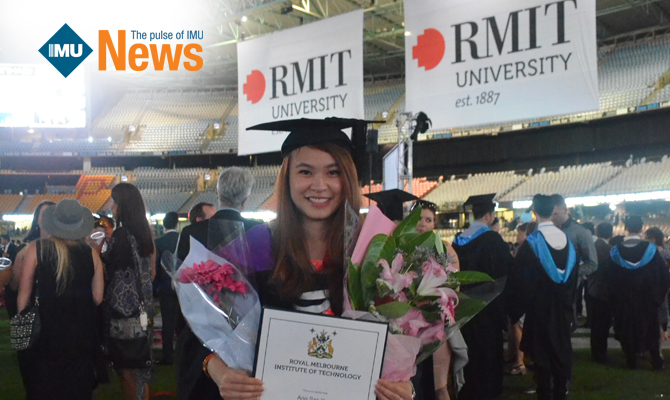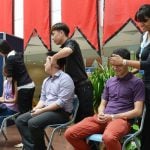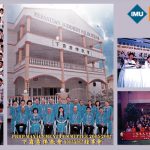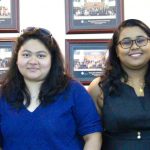Hi everyone! My name is Amelia Ang Sze Yun, a Chinese Medicine physician at IMU Healthcare. I started my journey as a Chinese Medicine physician purely by accident. Dentistry was actually my first choice when I visited IMU, however, I did not manage to get into the dentistry programme due to the limited number of students admitted into the programme for each intake. I found out about Chinese Medicine at IMU by surprise, told my parents about my interest in it and that is how it started. 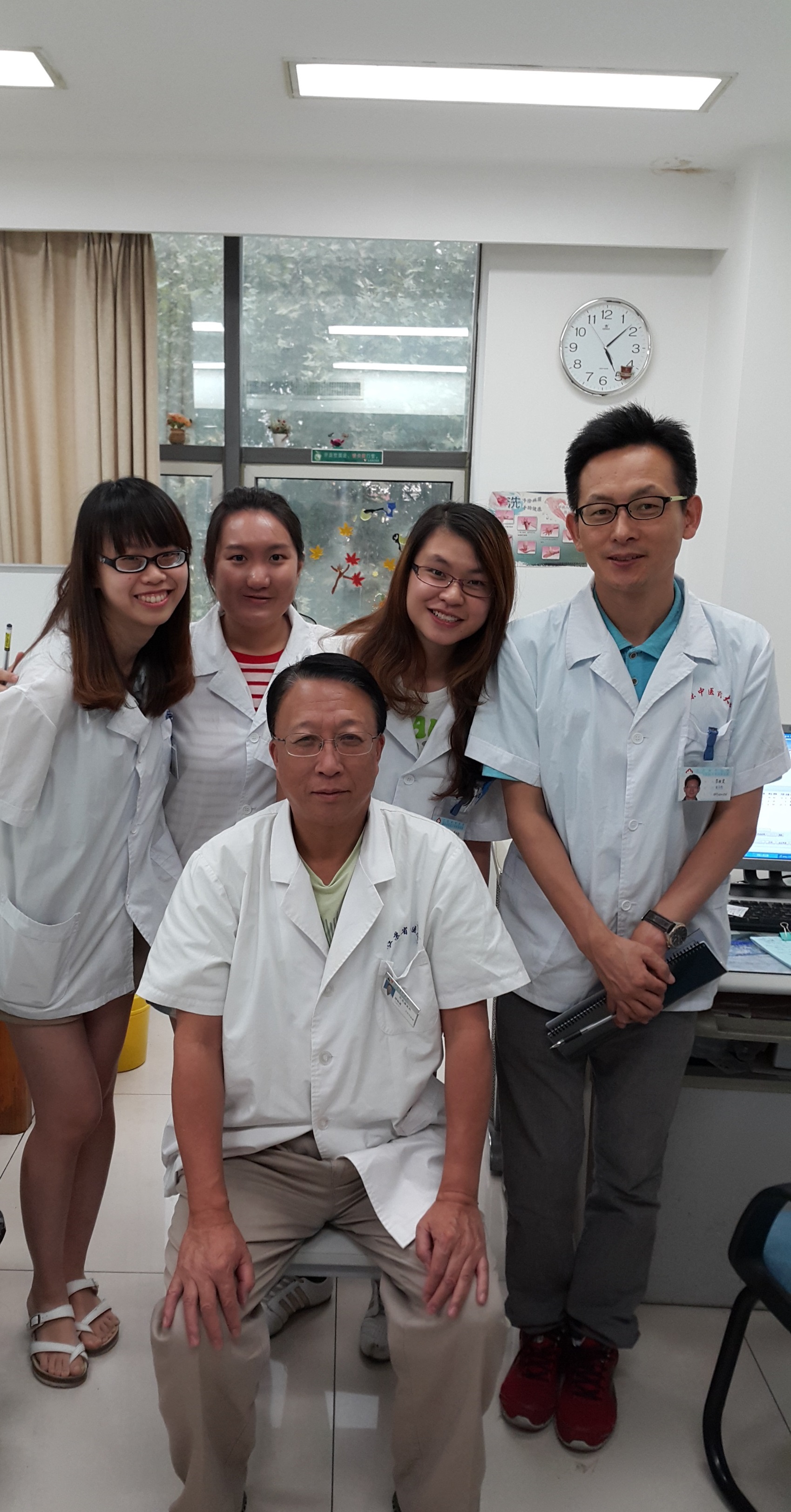 I joined the Chinese Medicine programme in 2011, the first cohort of Chinese Medicine in IMU. There are always pros and cons in being the first cohort, as everything will go on a trial and error basis. Although it was a tough journey for us – not having seniors to guide us and having lecturers who are new to teaching Chinese Medicine in English – I still enjoyed my time at IMU. We built a closer relationship with lecturers because they spent more time with us and listened to our feedback.
I joined the Chinese Medicine programme in 2011, the first cohort of Chinese Medicine in IMU. There are always pros and cons in being the first cohort, as everything will go on a trial and error basis. Although it was a tough journey for us – not having seniors to guide us and having lecturers who are new to teaching Chinese Medicine in English – I still enjoyed my time at IMU. We built a closer relationship with lecturers because they spent more time with us and listened to our feedback. 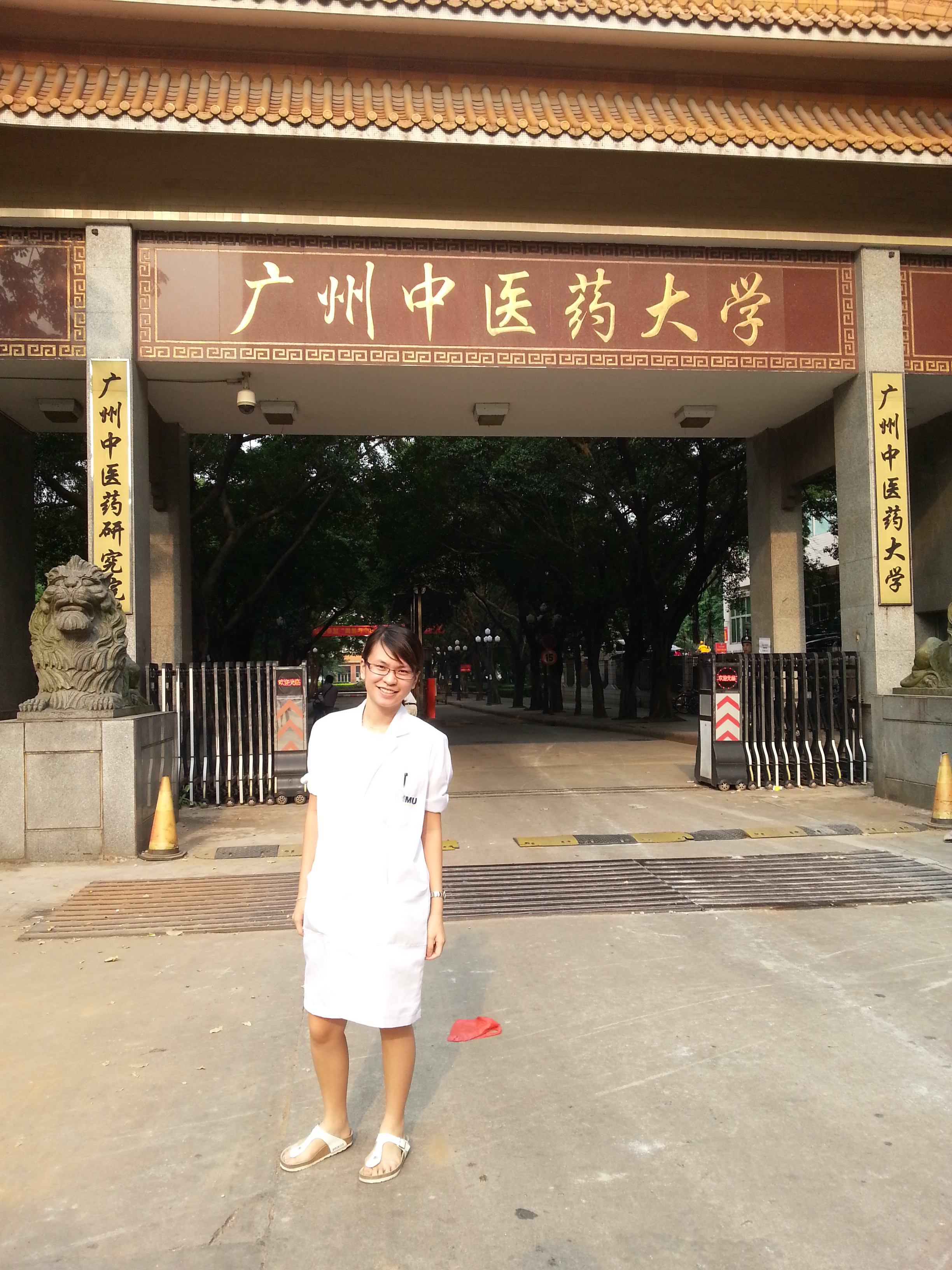 The decision to opt for credit transfer was made in the very first year of my studies even though we will only proceed to our chosen university in either Australia or China in the 4th year. People are surprised when I opted to transfer to RMIT in Australia. I am often asked “Why would you choose Australia instead of China and why would you study Chinese Medicine in a western country?” Before I went to Australia, my answers were “for a different exposure and it could also be a new opportunity for me to compete with others when I head back to Malaysia.” Looking back at my time at RMIT, I have no regrets for choosing Australia as the clinical experiences I had at the University can never be compared to Malaysia nor China. It trained me to become a better practitioner. The most memorable moment at RMIT would be the time when I first received an appreciation letter from my patient and that was when I decided to make Chinese Medicine Physician as my lifetime career!
The decision to opt for credit transfer was made in the very first year of my studies even though we will only proceed to our chosen university in either Australia or China in the 4th year. People are surprised when I opted to transfer to RMIT in Australia. I am often asked “Why would you choose Australia instead of China and why would you study Chinese Medicine in a western country?” Before I went to Australia, my answers were “for a different exposure and it could also be a new opportunity for me to compete with others when I head back to Malaysia.” Looking back at my time at RMIT, I have no regrets for choosing Australia as the clinical experiences I had at the University can never be compared to Malaysia nor China. It trained me to become a better practitioner. The most memorable moment at RMIT would be the time when I first received an appreciation letter from my patient and that was when I decided to make Chinese Medicine Physician as my lifetime career! 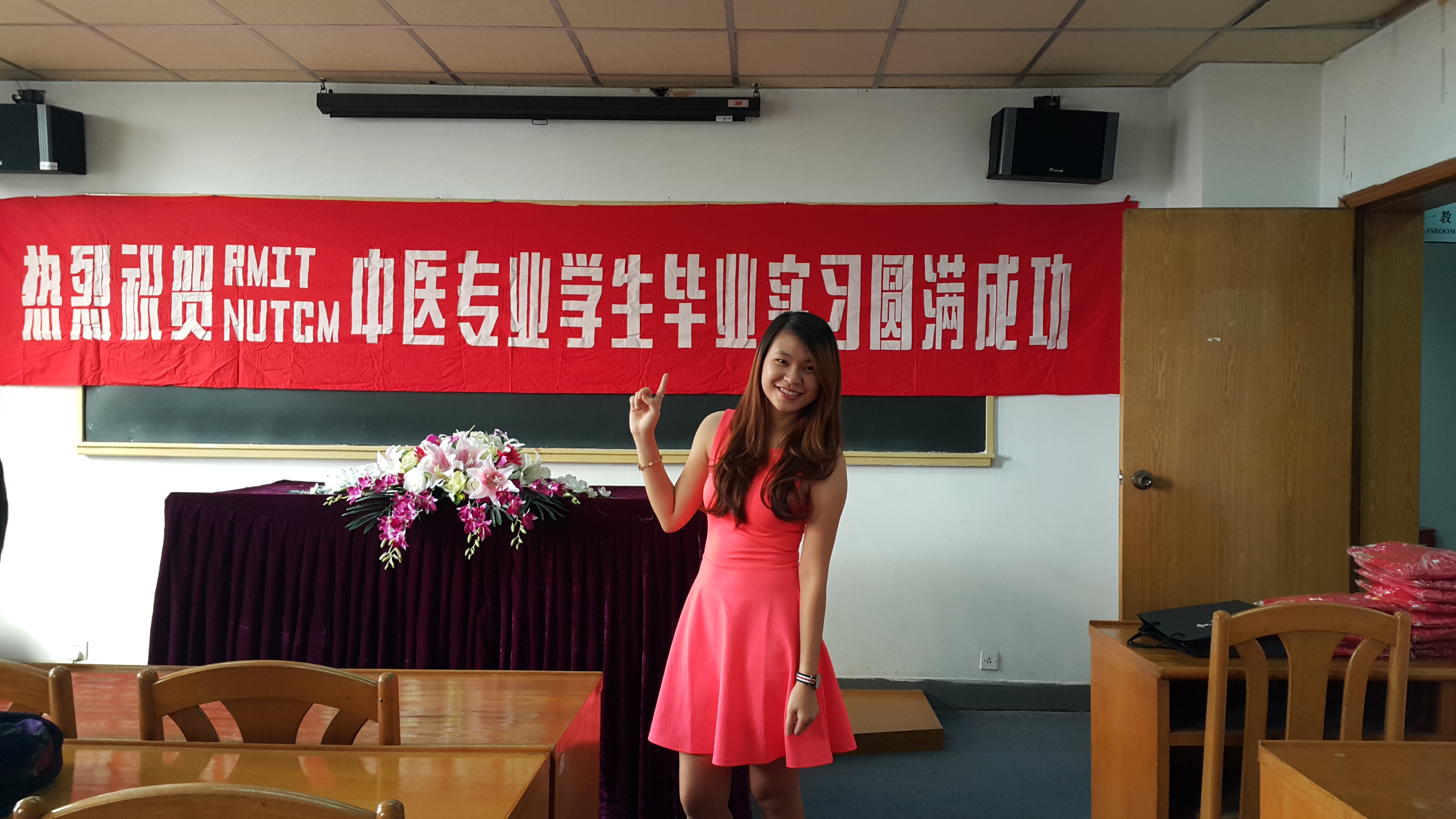 Furthermore, the learning system in IMU and RMIT was quite different. As the Chinese Medicine programme was newly introduced at IMU (I’m sure the programme has evolved and improved over the years), the first two years focused more on theory instead of practical skills. We had long hours of classes every day from 9am to 5pm, coupled with countless tests and quizzes in between the semesters. We also have more academic weeks – 16 weeks per semester versus 12 weeks in Australia. Don’t get me wrong, we actually learned more and gain a deeper understanding for each subject as well as certain topics. While in Australia, there was absolutely no spoon-feeding! We were required to do self-study after lectures. The lectures merely provided introduction and basic information about a certain topic. To understand a topic further, we were expected to study and look for the answers on our own. In addition to that, the teaching in Australia focused more on practical skills, which I thought was a really good way for us to practice and learn.
Furthermore, the learning system in IMU and RMIT was quite different. As the Chinese Medicine programme was newly introduced at IMU (I’m sure the programme has evolved and improved over the years), the first two years focused more on theory instead of practical skills. We had long hours of classes every day from 9am to 5pm, coupled with countless tests and quizzes in between the semesters. We also have more academic weeks – 16 weeks per semester versus 12 weeks in Australia. Don’t get me wrong, we actually learned more and gain a deeper understanding for each subject as well as certain topics. While in Australia, there was absolutely no spoon-feeding! We were required to do self-study after lectures. The lectures merely provided introduction and basic information about a certain topic. To understand a topic further, we were expected to study and look for the answers on our own. In addition to that, the teaching in Australia focused more on practical skills, which I thought was a really good way for us to practice and learn. 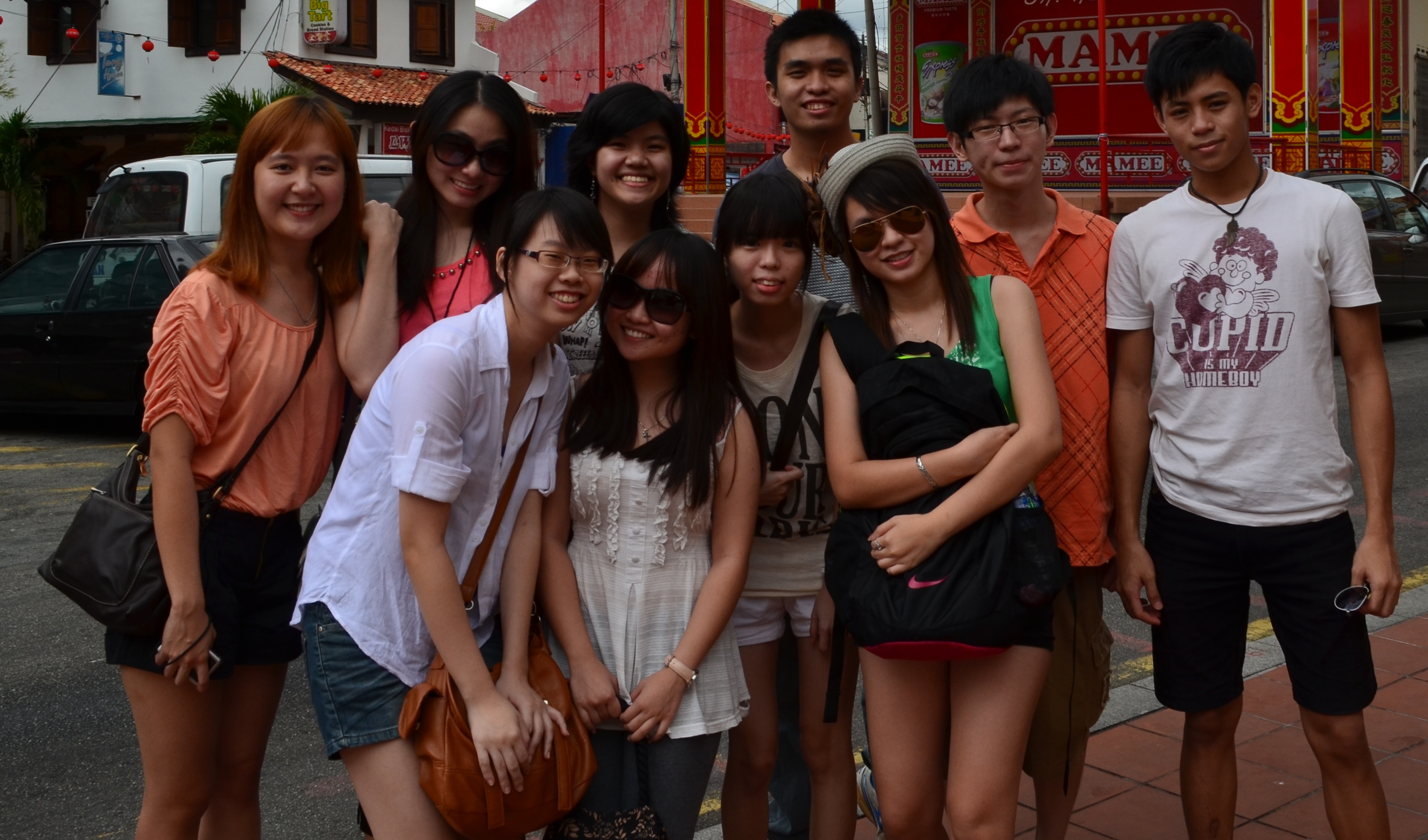
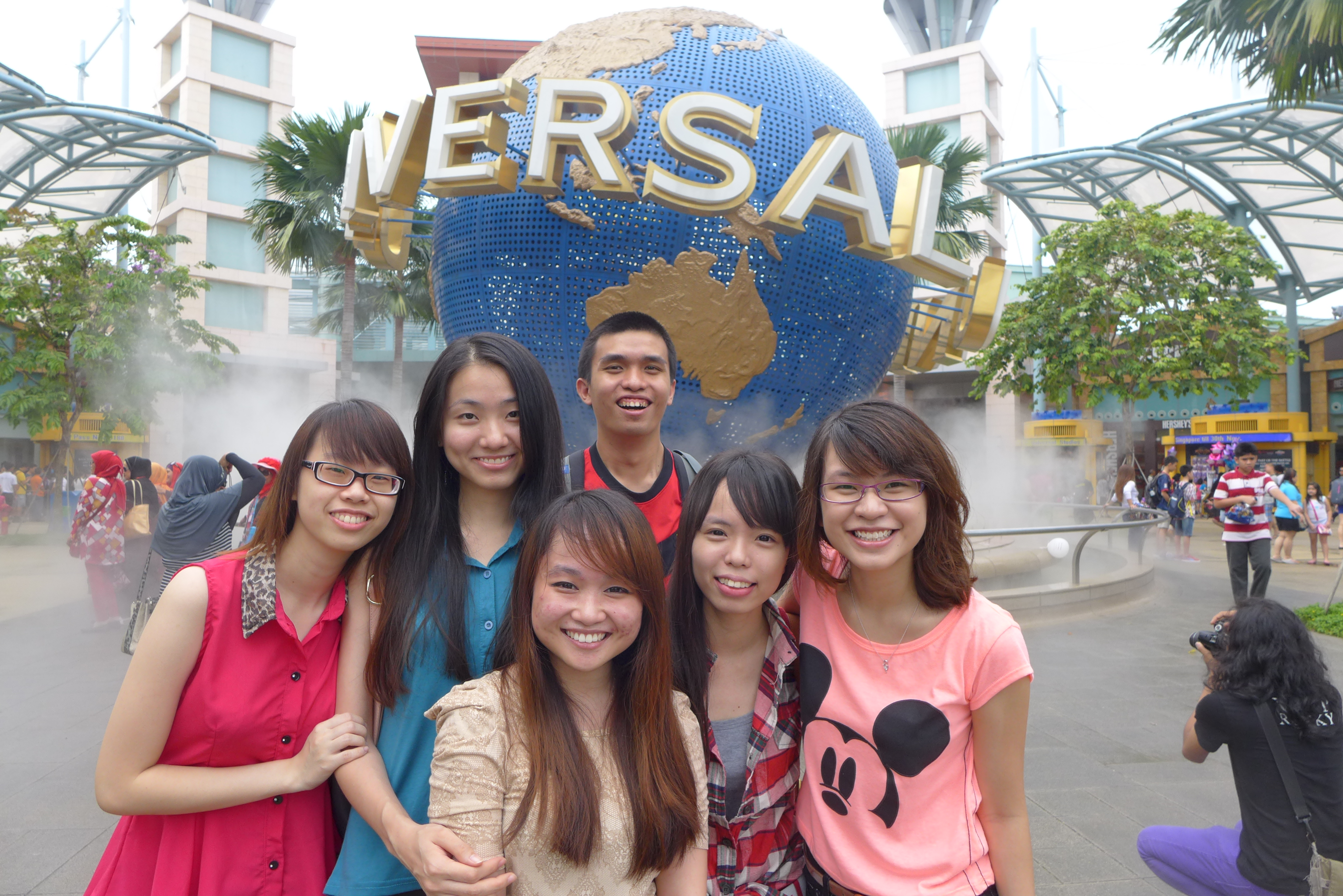 Due to the cultural differences, it was not easy for us to expose our body parts for practical sessions in Malaysia. However, there were no such issues with this in Australia. Last but not least, the experience in the student practising clinic has turned me into a more confident practitioner especially when it comes to dealing with patients.
Due to the cultural differences, it was not easy for us to expose our body parts for practical sessions in Malaysia. However, there were no such issues with this in Australia. Last but not least, the experience in the student practising clinic has turned me into a more confident practitioner especially when it comes to dealing with patients. 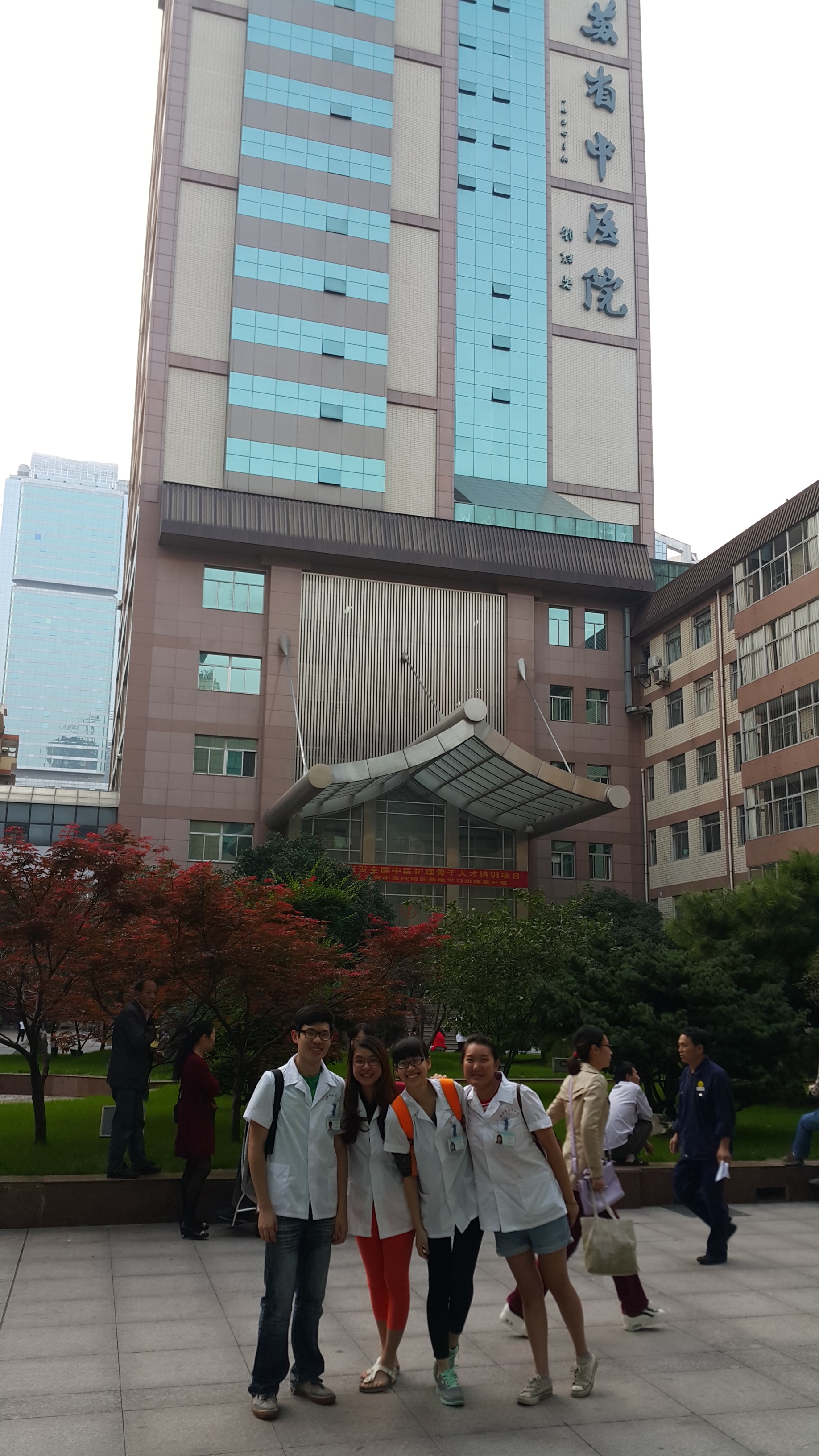 For the last semester in Year 5, we were attached to Nanjing Hospital in China for an internship. During the 4 months, we were divided into groups of 3 and put on rotation for 9 departments. The departments were acupuncture, tui-na, gynaecology, dermatology, gastroenterology, rheumatology, respiratory, paediatrics and oncology. We were mainly involved in the outpatients department as that was the place where the doctors would consult up to 100 patients per day. It was a very good experience for us as we got to see a variety of cases and diseases, and at the same time, we learned a lot from the doctors in terms of acupuncture skills and knowledge on herbal prescription. When I graduated from RMIT, I was in a dilemma when I was offered a scholarship to study a master programme and a job opportunity at the same time. After some discussions with my family and lecturers, I decided to take up the offer from IMU Healthcare to practice as a Chinese Medicine physician. The reason behind this is that I hope to gain some clinical experiences before I pursue further studies.
For the last semester in Year 5, we were attached to Nanjing Hospital in China for an internship. During the 4 months, we were divided into groups of 3 and put on rotation for 9 departments. The departments were acupuncture, tui-na, gynaecology, dermatology, gastroenterology, rheumatology, respiratory, paediatrics and oncology. We were mainly involved in the outpatients department as that was the place where the doctors would consult up to 100 patients per day. It was a very good experience for us as we got to see a variety of cases and diseases, and at the same time, we learned a lot from the doctors in terms of acupuncture skills and knowledge on herbal prescription. When I graduated from RMIT, I was in a dilemma when I was offered a scholarship to study a master programme and a job opportunity at the same time. After some discussions with my family and lecturers, I decided to take up the offer from IMU Healthcare to practice as a Chinese Medicine physician. The reason behind this is that I hope to gain some clinical experiences before I pursue further studies.  My advice to those who want to take Chinese Medicine is to be brave to accept the opinions and criticism of others – stand up and show them that learning Chinese Medicine in English not only benefits us from having a variety of patients, but at the same time, we earn respect from other healthcare practitioners as we are able to explain clearly and communicate well with them too. It will be good if we can integrate both Chinese and Western Medicine in order to provide the best treatment outcome for patients. My future plan is to earn my Masters or PhD before the age of 30 and become one of the top physicians in dealing with cosmetic acupuncture. Disclaimer: The views and opinions expressed in this article are those of the author and do not necessarily reflect the official opinion and views of the University. The teaching and learning methods described in this article also does not reflect the current teaching and learning methods for the Chinese Medicine programme in IMU today.
My advice to those who want to take Chinese Medicine is to be brave to accept the opinions and criticism of others – stand up and show them that learning Chinese Medicine in English not only benefits us from having a variety of patients, but at the same time, we earn respect from other healthcare practitioners as we are able to explain clearly and communicate well with them too. It will be good if we can integrate both Chinese and Western Medicine in order to provide the best treatment outcome for patients. My future plan is to earn my Masters or PhD before the age of 30 and become one of the top physicians in dealing with cosmetic acupuncture. Disclaimer: The views and opinions expressed in this article are those of the author and do not necessarily reflect the official opinion and views of the University. The teaching and learning methods described in this article also does not reflect the current teaching and learning methods for the Chinese Medicine programme in IMU today.
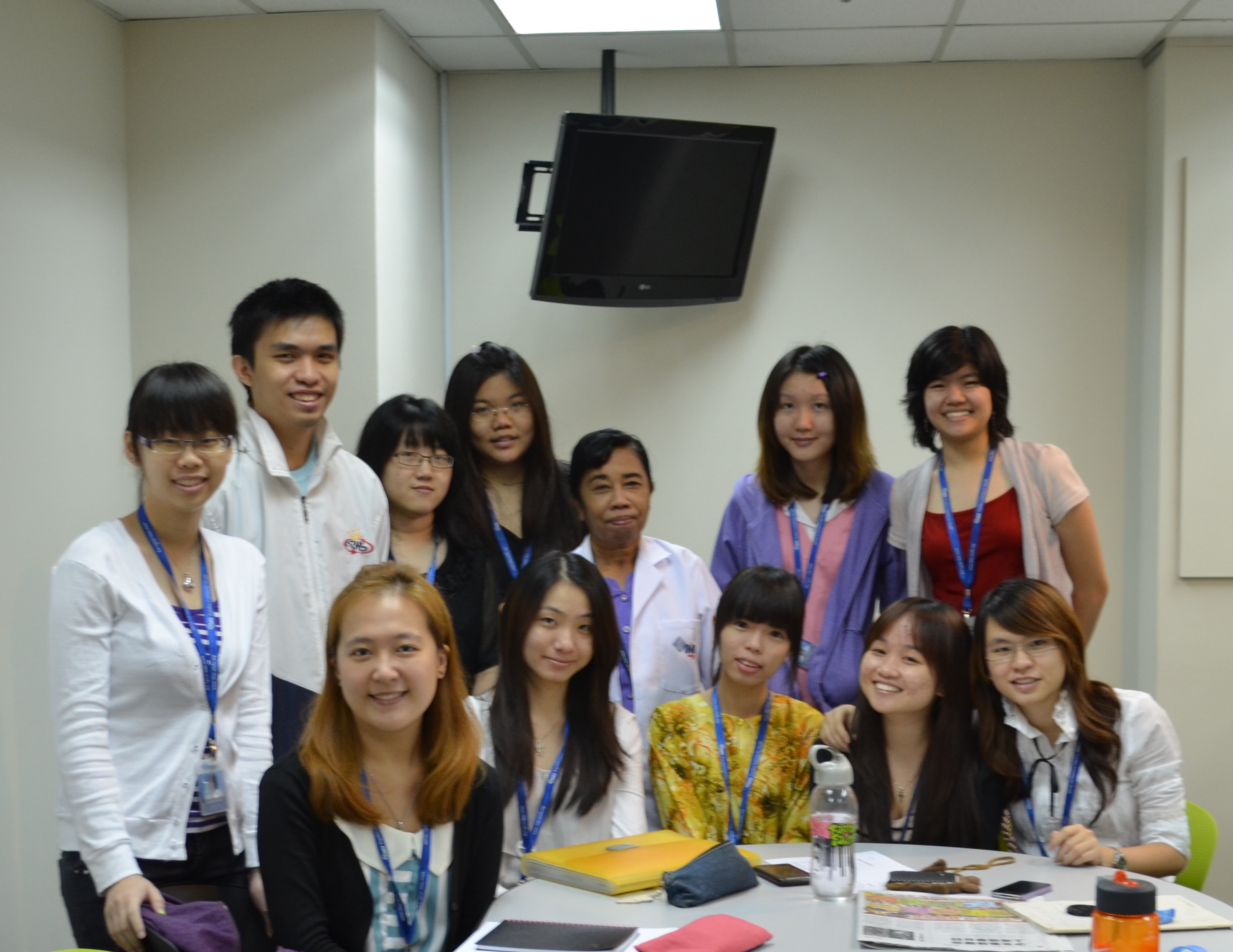
| Comments from IMU lecturer and colleague, Wong Zhi Hang |
| “Amelia is from the first batch of Chinese Medicine students at IMU. Recalling the first lecture I had with them, I noticed that Amelia is an intelligent student who is willing to participate during any of the interactive sessions. She also frequently asked questions during my lectures. As a student, I was very impressed with her intelligence and initiative and we have established a strong student-lecturer rapport during her time at IMU, which continued after she has transferred to RMIT. In 2015, we met up in China during my PhD studies and her housemanship. During this time, we shared the differences about learning and living experiences in China and Australia with each other. Now, as colleagues, we are able to work very well together due to the rapport that we have. We always share ideas about clinic practices and clinical teaching activities. Despite being a fresh graduate, her maturity and strong foundation in Chinese Medicine, made her a very confident and competent Chinese Medicine physician at the IMU Chinese Medicine clinic.” |
| Comments from IMU lecturer and colleague, Ng Shih Chau |
| As student, Amelia was very cheerful and independent. She was also hardworking and used her study break wisely by going to the partner University affiliated hospital for practicum. After graduating from RMIT, she is confident and competent in handling her patients independently. Her high EQ allows her to work in a highly stressful environment. In addition, she has master communicating in both English and Mandarin with her patients as well as co-workers. |
| Comments from RMIT’s previous Programme Coordinator, Suzi Mansu |
| Amelia was a very keen student and studied very diligently. She was polite and respectful of her teachers, fellow classmates and the patients she treated at the teaching clinic. She developed ad improved her skills quickly at the clinic. She was able to maintain a rapport with her patients and earned their trust. She received excellent academic results and got a very high grade point average (GPA) even though she was only at RMIT for two years. |
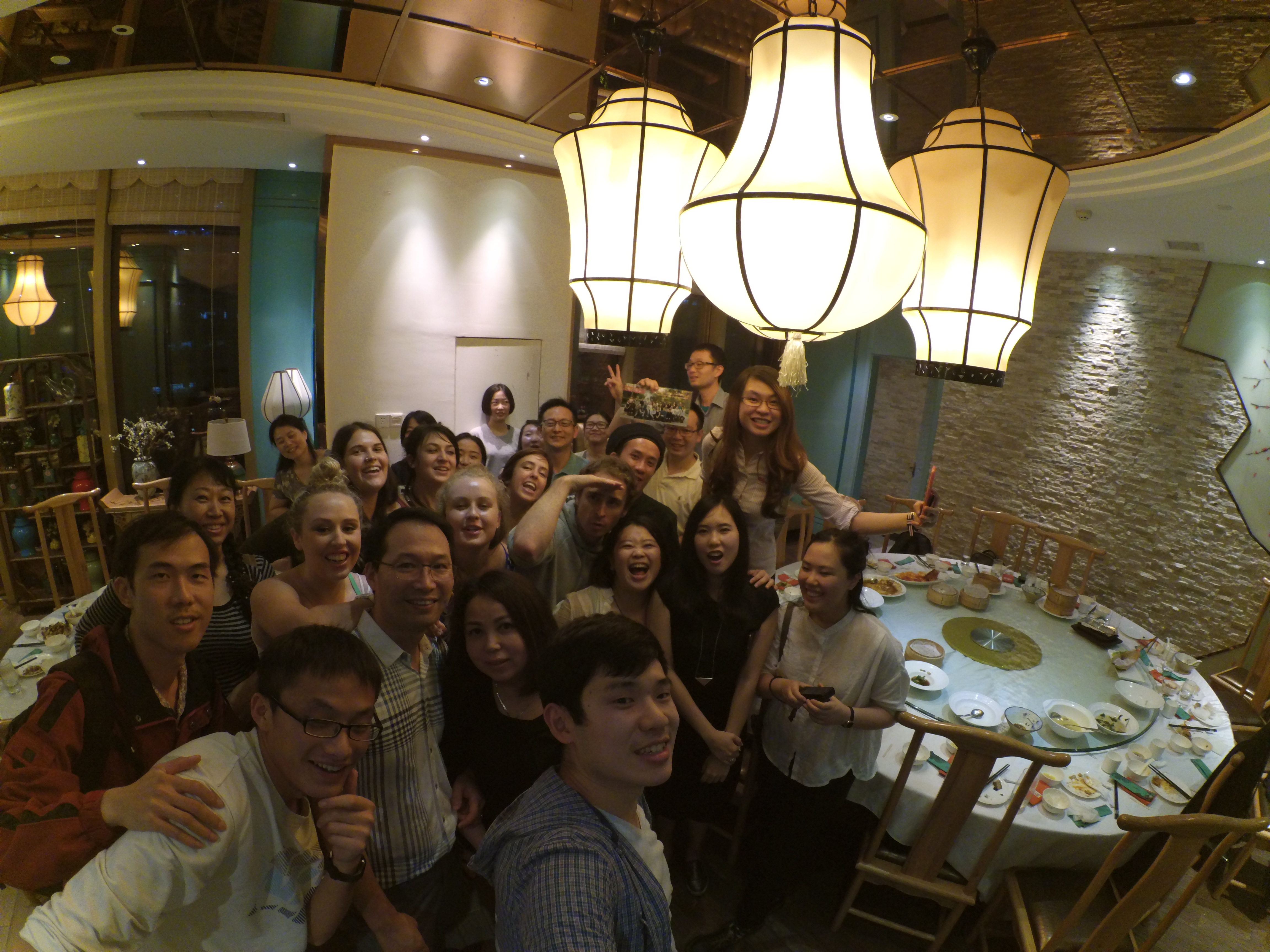
 I joined the Chinese Medicine programme in 2011, the first cohort of Chinese Medicine in IMU. There are always pros and cons in being the first cohort, as everything will go on a trial and error basis. Although it was a tough journey for us – not having seniors to guide us and having lecturers who are new to teaching Chinese Medicine in English – I still enjoyed my time at IMU. We built a closer relationship with lecturers because they spent more time with us and listened to our feedback.
I joined the Chinese Medicine programme in 2011, the first cohort of Chinese Medicine in IMU. There are always pros and cons in being the first cohort, as everything will go on a trial and error basis. Although it was a tough journey for us – not having seniors to guide us and having lecturers who are new to teaching Chinese Medicine in English – I still enjoyed my time at IMU. We built a closer relationship with lecturers because they spent more time with us and listened to our feedback.  The decision to opt for credit transfer was made in the very first year of my studies even though we will only proceed to our chosen university in either Australia or China in the 4th year. People are surprised when I opted to transfer to RMIT in Australia. I am often asked “Why would you choose Australia instead of China and why would you study Chinese Medicine in a western country?” Before I went to Australia, my answers were “for a different exposure and it could also be a new opportunity for me to compete with others when I head back to Malaysia.” Looking back at my time at RMIT, I have no regrets for choosing Australia as the clinical experiences I had at the University can never be compared to Malaysia nor China. It trained me to become a better practitioner. The most memorable moment at RMIT would be the time when I first received an appreciation letter from my patient and that was when I decided to make Chinese Medicine Physician as my lifetime career!
The decision to opt for credit transfer was made in the very first year of my studies even though we will only proceed to our chosen university in either Australia or China in the 4th year. People are surprised when I opted to transfer to RMIT in Australia. I am often asked “Why would you choose Australia instead of China and why would you study Chinese Medicine in a western country?” Before I went to Australia, my answers were “for a different exposure and it could also be a new opportunity for me to compete with others when I head back to Malaysia.” Looking back at my time at RMIT, I have no regrets for choosing Australia as the clinical experiences I had at the University can never be compared to Malaysia nor China. It trained me to become a better practitioner. The most memorable moment at RMIT would be the time when I first received an appreciation letter from my patient and that was when I decided to make Chinese Medicine Physician as my lifetime career!  Furthermore, the learning system in IMU and RMIT was quite different. As the Chinese Medicine programme was newly introduced at IMU (I’m sure the programme has evolved and improved over the years), the first two years focused more on theory instead of practical skills. We had long hours of classes every day from 9am to 5pm, coupled with countless tests and quizzes in between the semesters. We also have more academic weeks – 16 weeks per semester versus 12 weeks in Australia. Don’t get me wrong, we actually learned more and gain a deeper understanding for each subject as well as certain topics. While in Australia, there was absolutely no spoon-feeding! We were required to do self-study after lectures. The lectures merely provided introduction and basic information about a certain topic. To understand a topic further, we were expected to study and look for the answers on our own. In addition to that, the teaching in Australia focused more on practical skills, which I thought was a really good way for us to practice and learn.
Furthermore, the learning system in IMU and RMIT was quite different. As the Chinese Medicine programme was newly introduced at IMU (I’m sure the programme has evolved and improved over the years), the first two years focused more on theory instead of practical skills. We had long hours of classes every day from 9am to 5pm, coupled with countless tests and quizzes in between the semesters. We also have more academic weeks – 16 weeks per semester versus 12 weeks in Australia. Don’t get me wrong, we actually learned more and gain a deeper understanding for each subject as well as certain topics. While in Australia, there was absolutely no spoon-feeding! We were required to do self-study after lectures. The lectures merely provided introduction and basic information about a certain topic. To understand a topic further, we were expected to study and look for the answers on our own. In addition to that, the teaching in Australia focused more on practical skills, which I thought was a really good way for us to practice and learn. 
 Due to the cultural differences, it was not easy for us to expose our body parts for practical sessions in Malaysia. However, there were no such issues with this in Australia. Last but not least, the experience in the student practising clinic has turned me into a more confident practitioner especially when it comes to dealing with patients.
Due to the cultural differences, it was not easy for us to expose our body parts for practical sessions in Malaysia. However, there were no such issues with this in Australia. Last but not least, the experience in the student practising clinic has turned me into a more confident practitioner especially when it comes to dealing with patients.  For the last semester in Year 5, we were attached to Nanjing Hospital in China for an internship. During the 4 months, we were divided into groups of 3 and put on rotation for 9 departments. The departments were acupuncture, tui-na, gynaecology, dermatology, gastroenterology, rheumatology, respiratory, paediatrics and oncology. We were mainly involved in the outpatients department as that was the place where the doctors would consult up to 100 patients per day. It was a very good experience for us as we got to see a variety of cases and diseases, and at the same time, we learned a lot from the doctors in terms of acupuncture skills and knowledge on herbal prescription. When I graduated from RMIT, I was in a dilemma when I was offered a scholarship to study a master programme and a job opportunity at the same time. After some discussions with my family and lecturers, I decided to take up the offer from IMU Healthcare to practice as a Chinese Medicine physician. The reason behind this is that I hope to gain some clinical experiences before I pursue further studies.
For the last semester in Year 5, we were attached to Nanjing Hospital in China for an internship. During the 4 months, we were divided into groups of 3 and put on rotation for 9 departments. The departments were acupuncture, tui-na, gynaecology, dermatology, gastroenterology, rheumatology, respiratory, paediatrics and oncology. We were mainly involved in the outpatients department as that was the place where the doctors would consult up to 100 patients per day. It was a very good experience for us as we got to see a variety of cases and diseases, and at the same time, we learned a lot from the doctors in terms of acupuncture skills and knowledge on herbal prescription. When I graduated from RMIT, I was in a dilemma when I was offered a scholarship to study a master programme and a job opportunity at the same time. After some discussions with my family and lecturers, I decided to take up the offer from IMU Healthcare to practice as a Chinese Medicine physician. The reason behind this is that I hope to gain some clinical experiences before I pursue further studies.  My advice to those who want to take Chinese Medicine is to be brave to accept the opinions and criticism of others – stand up and show them that learning Chinese Medicine in English not only benefits us from having a variety of patients, but at the same time, we earn respect from other healthcare practitioners as we are able to explain clearly and communicate well with them too. It will be good if we can integrate both Chinese and Western Medicine in order to provide the best treatment outcome for patients. My future plan is to earn my Masters or PhD before the age of 30 and become one of the top physicians in dealing with cosmetic acupuncture. Disclaimer: The views and opinions expressed in this article are those of the author and do not necessarily reflect the official opinion and views of the University. The teaching and learning methods described in this article also does not reflect the current teaching and learning methods for the Chinese Medicine programme in IMU today.
My advice to those who want to take Chinese Medicine is to be brave to accept the opinions and criticism of others – stand up and show them that learning Chinese Medicine in English not only benefits us from having a variety of patients, but at the same time, we earn respect from other healthcare practitioners as we are able to explain clearly and communicate well with them too. It will be good if we can integrate both Chinese and Western Medicine in order to provide the best treatment outcome for patients. My future plan is to earn my Masters or PhD before the age of 30 and become one of the top physicians in dealing with cosmetic acupuncture. Disclaimer: The views and opinions expressed in this article are those of the author and do not necessarily reflect the official opinion and views of the University. The teaching and learning methods described in this article also does not reflect the current teaching and learning methods for the Chinese Medicine programme in IMU today. 



